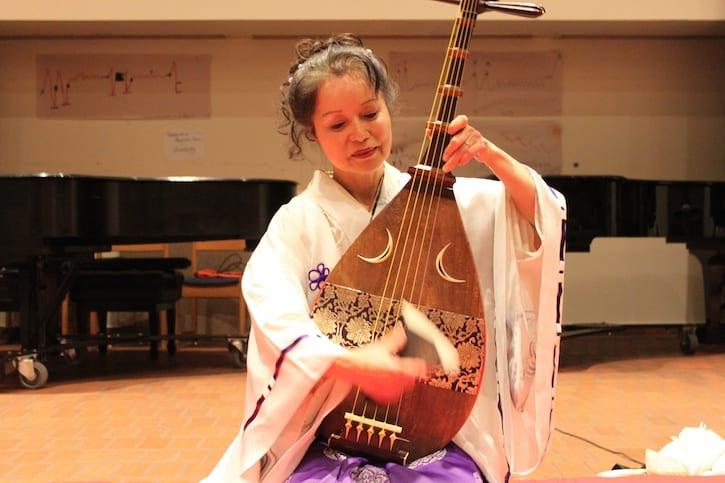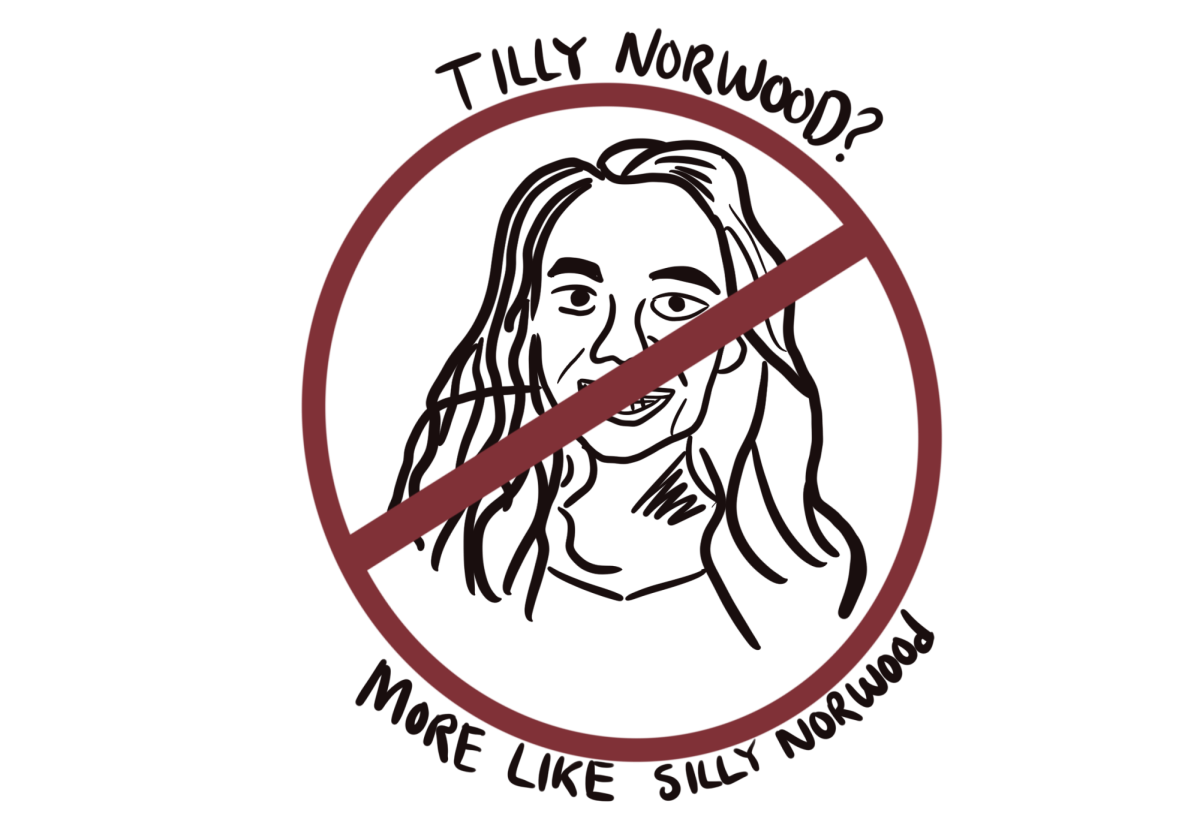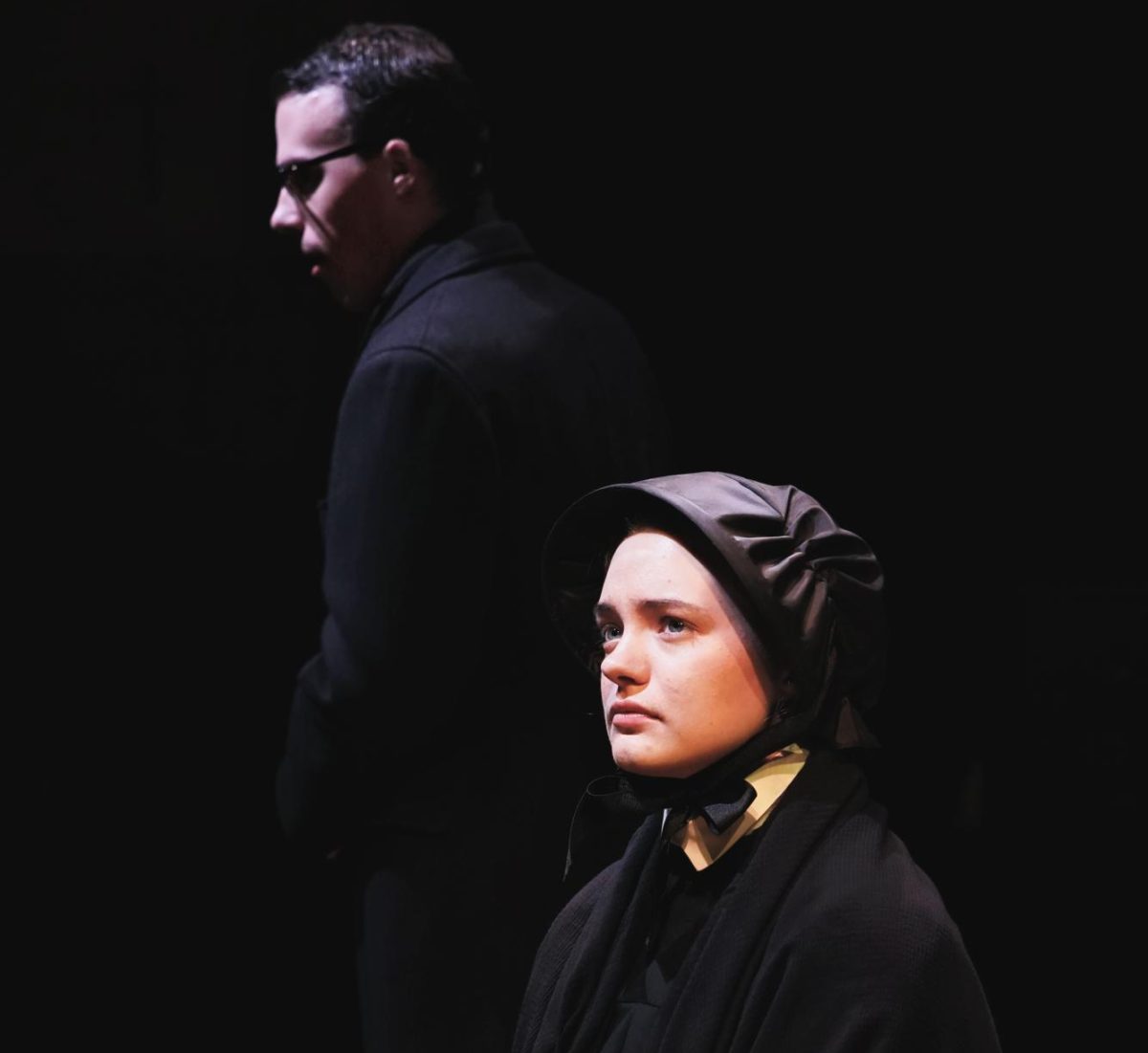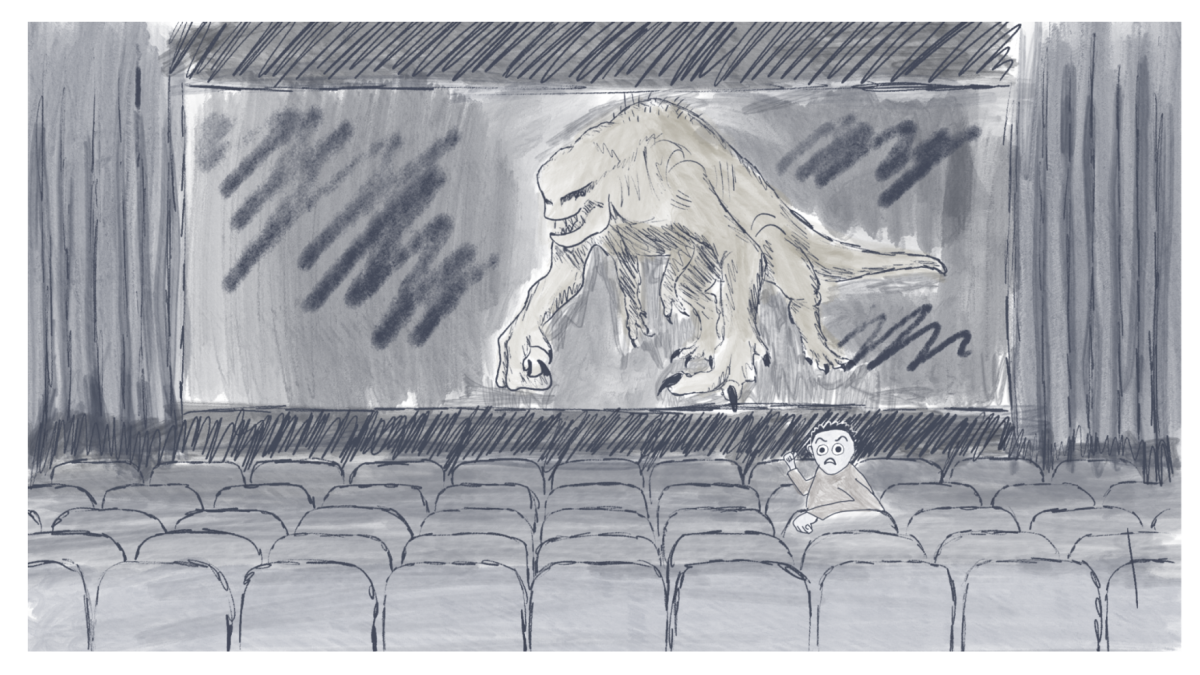Christiansen Hall of Music is home to many of St. Olaf’s greatest performances. There is no doubt that the constant flow of voices, emotions and harmony could warm even the coldest of hearts. On Nov. 21, however, an audience in Christiansen was pulled back to an ancient time. An orator, dressed in traditional Japanese attire, filled Fosnes Hall with her mystical voice. She sang of tales only heard eons ago, strumming on an instrument that had long been lost to history. She was guest performer Yoko Hiraoka and she was playing the biwa.
The Japanese Storytelling concert was organized by the Asian Studies and Environmental Studies departments. This unusual collaboration was funded by a Luce Initiative on Asia and the Environment LIASE grant from the Henry Luce Foundation, which is led by grant director, Professor of Asian Studies and Reference Librarian Kris MacPherson.
What Asian scholars have in common with the environmentalists is a love and appreciation for nature. The concept of God, known as “Kami” in Japanese, involves a realization that holiness exists not in separate entities but in nature. Kami are the spirits worshipped in Shinto, the indigenous religion of Japan, which exist as or within all elements of nature.
In his introduction, Assistant Professor of Japanese and Asian Studies William Bridges talked about how the “cultural, philosophical and aesthetic dimensions form a crucial part of the search for solutions to urgent environmental problems” quoting from Stanford University’s Environmental Humanities Project and explained that the environmental humanities – like music about the environment – can shape the way we go about solving our issues with the environment.
The instrument Hiraoka played, known as the biwa, is a kind of lute with four strings. It was imported to Japan long ago, along with Buddhism, and is the chosen instrument of Benten, Buddhist goddess of music, eloquence, poetry and education. Biwa performances are usually accompanied by stories of great warriors and triumphs. Hiraoka usually performs “The Tale of Heike,” a traditional warrior story, but this time she chose to perform “The Tale of Genji,” which is sometimes referred to as the world’s first novel in recorded history.
Kneeling in front of the crowd with the biwa on her lap and a pick used to strum on the strings, Hiraoka masterfully played as she retold the ancient stories, switching from speaking to deep and emotional singing. She sang in classical Japanese, and audience members received a handout with the translations of the songs.
“The aesthetic of biwa music came across as haunting, vastly different from what I usually hear in traditional classic music,” said Erik Taketomo ’15. “I can’t really describe the sound of the biwa. It’s like a rusty echo. The strange music of the instrument combined with her emotional wailing I found very cool.”
The biwa certainly sounds like no other instrument. Hiraoka said that its unique texture was what originally drew her to it
“I was fascinated by the sound of the instrument,” said Hiraoka. “It was so mesmerizing and mysterious. It was totally magical to me!”
Hiraoka explained how she saw her music the same way a painter would see his art:
“What you see in a painting is never the object, but the artist’s relationship to that object through the way he chooses to depict it,” Hiraoka said.
She says she does not try to alter her performance to suit her audience’s tastes, but instead her responsibility is to communicate what’s out there.
“They may really like it, or they may not,” said Hiraoka. “Everyone is affected differently. Humans are very . . . interesting creatures,” she said.
Hiraoka also explained the history of the biwa and its significance in Japanese culture in a short lecture. Students were fascinated by the rich tradition.
“The aspect of how music became a way for the laypeople to understand Buddhism by way of minstrel monks, which slowly transformed into ballads about court life, was something that struck me as interesting,” Hikari Sugisaki ’17 said.
The final moments of the concert were the most stirring, as Hiraoka recited the last two lines of The Tale of Genji. She delivered them somberly, leaving behind an eerie silence. When translated, they say: “This tale will be passed down to prosperity. This tale will be passed down to prosperity.” It was the only line that was repeated twice.
It’s amazing to think that these exact words were written thousands of years ago, predicting with such chilling confidence that this tale will survive. And here they are, countless generations later, in the most modern of times, recounted in their exact form, in the very traditional way they were meant to be heard, spoken in the same ancient Japanese. The words of the ancient poet – as far away through time and space as they were written – echoed in the Christiansen Hall of Music before the final round of applause erupted.
Photo Credit: CAROLINE TANG/MANITOU MESSENGER






